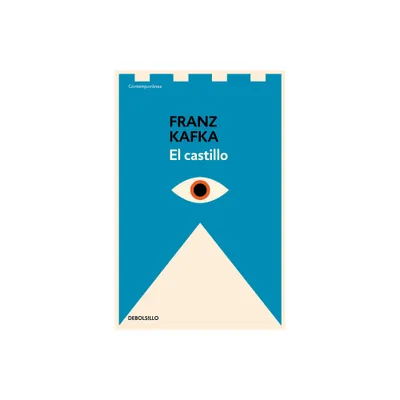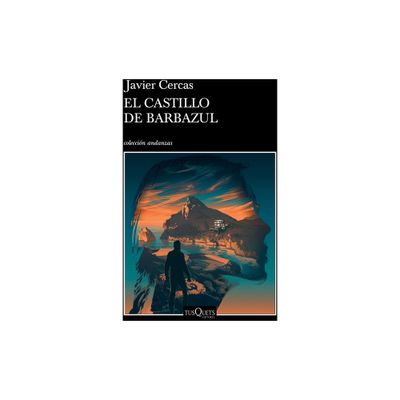Home
El Castillo / The Castle
Loading Inventory...
Barnes and Noble
El Castillo / The Castle
Current price: $15.95


Barnes and Noble
El Castillo / The Castle
Current price: $15.95
Loading Inventory...
Size: OS
*Product Information may vary - to confirm product availability, pricing, and additional information please contact Barnes and Noble
Publicada póstumamente en 1926, El castillo es la más tardía de las tres novelas que escribió Franz Kafka (1883-1924) y, pese a haber quedado inconclusa, pasa a ser una de las cumbres de la novela del siglo XX.
En ella se cuentan los infructuosos intentos del agrimensor K. por acceder a las autoridades del castillo, que al parecer han reclamado sus servicios, y obtener el permiso para ejercer su trabajo y establecerse así en la aldea en que ha sido recibido como un forastero. Con su insistencia en reclamar los derechos que le corresponden, las peripecias a menudo cómicas del agrimensor K. configuran una parábola insondable sobre la abstrusa condición del poder y sobre el difícil sentimiento de pertenencia que angustia al hombre moderno. El texto que se ofrece ahora al lector en una nueva traducción de Miguel Sáenz presenta, por fin, la obra de este autor, quizás el más emblemático del siglo XX, con las máximas garantías de rigor y fidelidad posibles.
"Habla un discípulo de Kafka, un tardío discípulo de Kafka, pero que sigue sintiéndolo y agradeciendo lo mucho que él le ha dado y lo poco que él ha podido hacer con ese espléndido regalo de su obra." -José Luis Borges.
ENGLISH DESCRIPTION
From the author of
The Metamorphosis
and
The Trial
—one of the greatest writers of the twentieth century—the haunting tale of K.’s relentless, unavailing struggle with an inscrutable authority to gain access to the Castle.
Arriving in a village to take up the position of land surveyor for the mysterious lord of a castle, the character known as K. finds himself in a bitter and baffling struggle to contact his new employer and go about his duties. Dark and at times surreal,
The Castle
is often understood to be about alienation, unresponsive bureaucracy, the frustration of trying to conduct business with non-transparent, seemingly arbitrary controlling systems, and the futile pursuit of an unobtainable goal.
The Castle's
original manuscript was left unfinished by Kafka in 1922 and not published until 1926, two years after his death. It suggested it would end with K. dying in the village, the castle notifying him on his death bed that his "legal claim to live in the village was not valid, yet, taking certain auxiliary circumstances into account, he was permitted to live and work there".
En ella se cuentan los infructuosos intentos del agrimensor K. por acceder a las autoridades del castillo, que al parecer han reclamado sus servicios, y obtener el permiso para ejercer su trabajo y establecerse así en la aldea en que ha sido recibido como un forastero. Con su insistencia en reclamar los derechos que le corresponden, las peripecias a menudo cómicas del agrimensor K. configuran una parábola insondable sobre la abstrusa condición del poder y sobre el difícil sentimiento de pertenencia que angustia al hombre moderno. El texto que se ofrece ahora al lector en una nueva traducción de Miguel Sáenz presenta, por fin, la obra de este autor, quizás el más emblemático del siglo XX, con las máximas garantías de rigor y fidelidad posibles.
"Habla un discípulo de Kafka, un tardío discípulo de Kafka, pero que sigue sintiéndolo y agradeciendo lo mucho que él le ha dado y lo poco que él ha podido hacer con ese espléndido regalo de su obra." -José Luis Borges.
ENGLISH DESCRIPTION
From the author of
The Metamorphosis
and
The Trial
—one of the greatest writers of the twentieth century—the haunting tale of K.’s relentless, unavailing struggle with an inscrutable authority to gain access to the Castle.
Arriving in a village to take up the position of land surveyor for the mysterious lord of a castle, the character known as K. finds himself in a bitter and baffling struggle to contact his new employer and go about his duties. Dark and at times surreal,
The Castle
is often understood to be about alienation, unresponsive bureaucracy, the frustration of trying to conduct business with non-transparent, seemingly arbitrary controlling systems, and the futile pursuit of an unobtainable goal.
The Castle's
original manuscript was left unfinished by Kafka in 1922 and not published until 1926, two years after his death. It suggested it would end with K. dying in the village, the castle notifying him on his death bed that his "legal claim to live in the village was not valid, yet, taking certain auxiliary circumstances into account, he was permitted to live and work there".


















